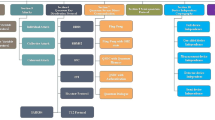Abstract
The advent of large-scale quantum computers would greatly threaten the security of current cryptosystems. It is urgent to investigate how quantum computing will affect the security of symmetric cryptosystems. Since the security of symmetric schemes heavily depends on the development of cryptanalytic tools, studying the applications of quantum algorithms to classical cryptanalytic tools is critical. To this end, we study quantum zero correlation linear cryptanalysis and propose two quantum algorithms for finding zero correlation linear hulls of Feistel ciphers and SPN ciphers, respectively. We prove that, as long as the attacked block ciphers satisfy certain algebraic conditions, the linear approximations output by the proposed algorithms have zero correlation with a probability close to one. The proposed algorithms have polynomial-time quantum complexity and do not require any quantum or classical query to the attacked block ciphers. Compared to the classical zero correlation linear cryptanalysis, the quantum version has the advantage for extending the number of rounds of zero correlation linear approximations.











Similar content being viewed by others
Data availability
The datasets generated during and/or analyzed during the current study are available from the corresponding author on reasonable request
References
Hermans, S.L.N., Pompili, M., Beukers, H.K.C., et al.: Qubit teleportation between non-neighbouring nodes in a quantum network. Nature 605, 663–668 (2022)
Wehner, S., Elkouss, D., Hanson, R.: Quantum internet: a vision for the road ahead. Science 362, eaam9288 (2018)
Zidan, M.: A novel quantum computing model based on entanglement degree. Modern Phys. Lett. B 34(35), 2050401 (2020)
Shor, P.: Algorithms for quantum computation: discrete logarithms and factoring. Foundations of Computer Science. 124–134 (2002)
Grover, L. K.: A fast quantum mechanical algorithm for database search. Annual ACM symposium on theory of computing. 212–219 (1996)
Simon, D. R.: On the power of quantum computation. Foundations of Computer Science. 116–123 (1994)
Kuwakado, H., Morii, M.: Quantum distinguisher between the 3-round Feistel cipher and the random permutation. IEEE international symposium on information theory. 2682–2685 (2010)
Kuwakado, H., Morii, M.: Security on the quantum-type Even-Mansour cipher. International symposium on information theory. 312–316 (2012)
Santoli, T., Schaffner, C.: Using Simon’s algorithm to attack symmetric-key cryptographic primitives. Quant. Inf. Comput. 17, 65–78 (2017)
Kaplan, M., Leurent, G., Leverrier, A., et al.: Breaking symmetric cryptosystems using quantum period finding. CRYPTO. II, 207–237 (2016)
Leander, G., May, A.: Grover Meets Simon–Quantumly Attacking the FX-construction. ASIACRYPT. 161–178 (2017)
Xiaoyang, D., Xiaoyun, W.: Quantum key-recovery attack on Feistel structures. Sci. China Inf. Sci. 61(10), 236–242 (2018)
Xiaoyang, D., Zheng, L., XiaoYun, W.: Quantum cryptanalysis on some generalized feistel schemes. Sci. China Inf. Sci. 62(2), 176–187 (2019)
Jaques, S., Naehrig, M., Roetteler, M., Virdia, F.: Implementing Grover Oracles for Quantum Key Search on AES and LowMC. EUROCRYPT. 280–310 (2020)
Zhou, Q., Lu, S., Zhang, Z., Sun, J.: Quantum differential cryptanalysis. Quant. Inf. Process. 14(6), 2101–2109 (2015)
Kaplan, M., Leurent, G., Leverrier, A., Naya-Plasencia, M.: Quantum differential and linear cryptanalysis. Fast Softw. Encrypt. 1, 71–94 (2017)
Hosoyamada, A., Sasaki, Y.: Finding Hash Collisions with Quantum Computers by Using Differential Trails with Smaller Probability than Birthday Bound. EUROCRYPT. 249–279 (2020)
Xiaoyang, Dong., Siwei, S., Danping, S., Fei, G., Xiaoyun, W., Lei, H.: Quantum Collision Attacks on AES-Like Hashing with Low Quantum Random Access Memories. ASIACRYPT. 727–757 (2020)
Bogdanov, A., Rijmen, V.: Linear hulls with correlation zero and linear cryptanalysis of block ciphers. Des. Codes Cryptogr. 70(3), 369–383 (2014)
Boneh, D., Dagdelen, O., Fischlin, M., Lehmann, A., Schaffner, C., Zhandry, M.: Random oracles in a quantum world. Asiacrypt 7073, 41–69 (2011)
Wen-Ling, W., Wen-Tao, Z., Deng-Guo, F.: Impossible differential cryptanalysis of round-reduced ARIA and Camellia. J. Comput. Sci. Technol. 22(3), 449–456 (2007)
Andrey, B., Huizheng, G., Meiqin, W., Long, W., Baudoin, C.: Zero correlation linear cryptanalysis with FFT and improved attacks on ISO standards Camellia and CLEFIA. Select. Areas Cryptogr. 8282, 306–323 (2013)
Hamid, M., Mohammad, D., Vincent, R., Mahmoud, M.: Improved impossible differential cryptanalysis of 7-round AES-128. Indocrypt 6498, 282–291 (2010)
Bing, S., Zhiqiang, Liu., Vincent, R., et al.: Links Among Impossible Differential, Integral and Zero Correlation Linear Cryptanalysis. CRYPTO. 95–115 (2015)
Nielsen, M., Chuang, I.: Quantum Computation and Quantum Information, 10th edn. Cambridge University Press, United States (2000)
Huiqin, Xie., Li, Yang.: Quantum Miss-in-the-Middle Attack. arXiv. 1812.08499, 1–10 (2018)
Acknowledgements
This work was funded by National Defense Basic Research Program of China (Grant No. JCKY2019102C001), the Open Research Fund of Key Laboratory of Cryptography of Zhejiang Province (Grant No. ZCL21012) and the Fundamental Research Funds for the Central Universities (Grant No. 328201915).
Author information
Authors and Affiliations
Corresponding author
Ethics declarations
Conflict of interest
The author declares that there are no conflicts of interest.
Additional information
Publisher's Note
Springer Nature remains neutral with regard to jurisdictional claims in published maps and institutional affiliations.
Rights and permissions
Springer Nature or its licensor holds exclusive rights to this article under a publishing agreement with the author(s) or other rightsholder(s); author self-archiving of the accepted manuscript version of this article is solely governed by the terms of such publishing agreement and applicable law.
About this article
Cite this article
Shi, R., Xie, H., Feng, H. et al. Quantum zero correlation linear cryptanalysis. Quantum Inf Process 21, 293 (2022). https://doi.org/10.1007/s11128-022-03642-2
Received:
Accepted:
Published:
DOI: https://doi.org/10.1007/s11128-022-03642-2



